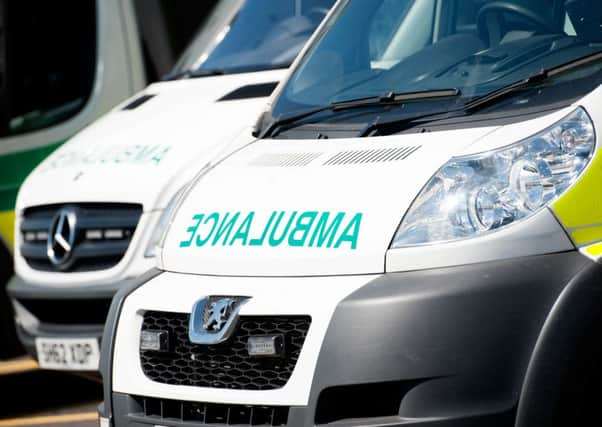Jane Bradley: 999 lesson from friend’s tragic death


The 41-year-old woman, a professor at the prestigious Babes Bolyai University in Cluj, Romania, is believed to have suffered a heart attack and called the emergency number complaining she was having trouble breathing.
The ambulance crew arrived at her flat shortly after the call was made and knocked on the door. When they received no answer, they waited for fifteen minutes, as per protocol, and departed after trying to call her mobile phone a couple of times.
Advertisement
Hide AdAdvertisement
Hide AdMeanwhile, the woman, Simona Bernat, tragically passed away. She was only found after a neighbour reported an unpleasant smell coming from the apartment.
Simona was a friend of mine, someone I met while I was living in Romania over ten years ago and someone with whom I shared occasional drinks, meals and for a brief period an apartment. She was a teacher, passionate about education - both for the university students she taught, but also through a social enterprise she founded herself which promoted learning and training, for people from disadvantaged backgrounds. She will be much missed.
My first reaction to the tragic situation which led to Simona’s death was to assume a similar situation could not happen here. Surely the ambulance service in Scotland has a different protocol to that in Romania?
Indeed, it is different - I am assured there is no case when a 999 call would be abandoned because paramedics could not gain entry - but there still are potential pitfalls. While the police and fire brigade have the wherewithal to force entry to someone’s home, the Scottish Ambulance Service does not. Therefore, the time it takes for a paramedic to phone one of the other two emergency services for help could be a matter of life and death.
In Romania, Simona’s friends and family are outraged at what happened. Feeling desperately ill, she had managed to make an emergency call. If that call had been answered successfully and she had been taken to hospital and received treatment, she could well be here today. The ambulance crew, her friends say, should have knocked down the door.
The authorities do not agree - although a full inquiry is being held into the details of Simona’s situation.
Presumably in Simona’s case her illness was so far advanced when she phoned the emergency number that she could not manage to make a second call before she collapsed. This must be the case for a large proportion of people who ask for the help of the emergency services.
Reassuringly, the Scottish Ambulance Service tells me staff are trained to do “everything within their power” to gain entry to a home without forcing the door. They would not wait outside for a while and then leave. The problem, they say, is ambulance staff do not carry the equipment necessary to batter down a door.
Advertisement
Hide AdAdvertisement
Hide AdInstead, like their Romanian counterparts, they try repeatedly calling the number from which the 999 call was made and attempt to contact neighbours who may have a key. They also check every possible entry to the property with many like Paisley paramedic Archie McCorkell who earlier this year made headlines when he squeezed through a tiny gap in a window to rescue an ill pensioner - going beyond the call of duty to do so.
However, ambulance staff, often struggle with modern locks and gaining access to someone’s home now is trickier than it was 20 years ago.
While the lengths that Scottish ambulance workers go to access patients are incredible, it makes little sense that in a small number of cases vital time is wasted waiting for the fire service or police to arrive.
A look online shows that paramedics have different ways of dealing with the problem. Some, writing anonymously on web forums, admit they keep a crowbar in the back of the ambulance, others say they fear they would get in trouble if using such an instrument.
Surely it would not be too difficult to equip every ambulance in Scotland with tools to access a locked door?
It could save lives.